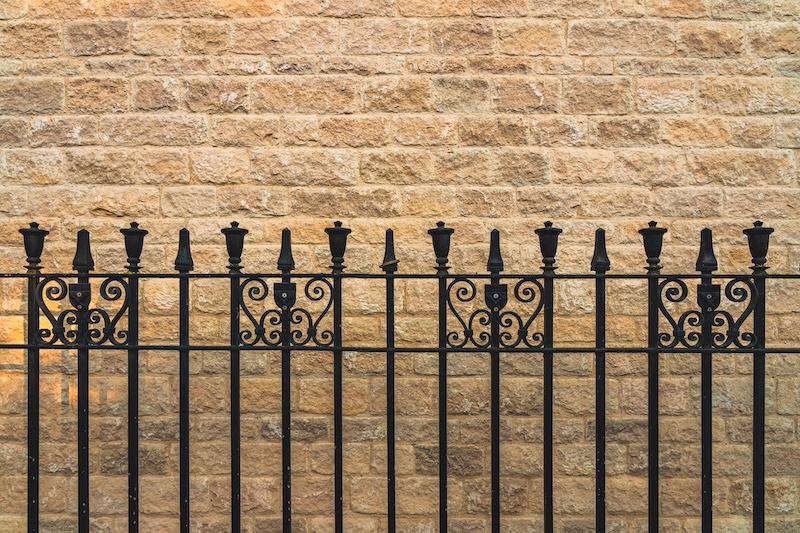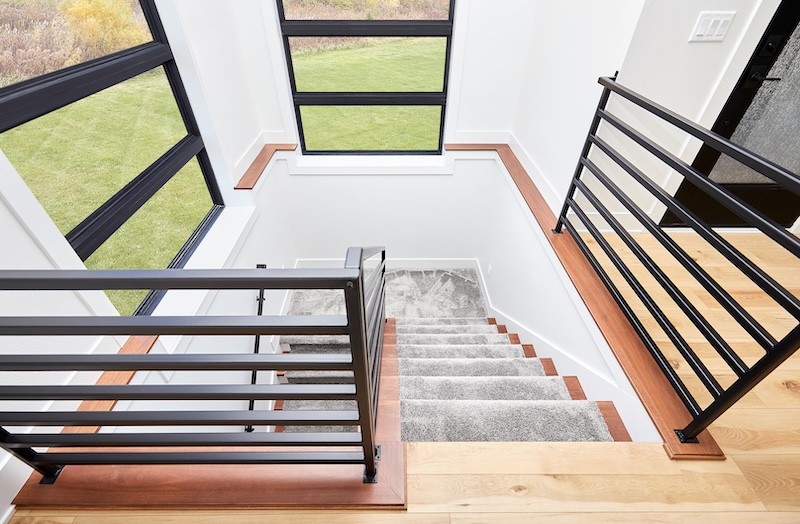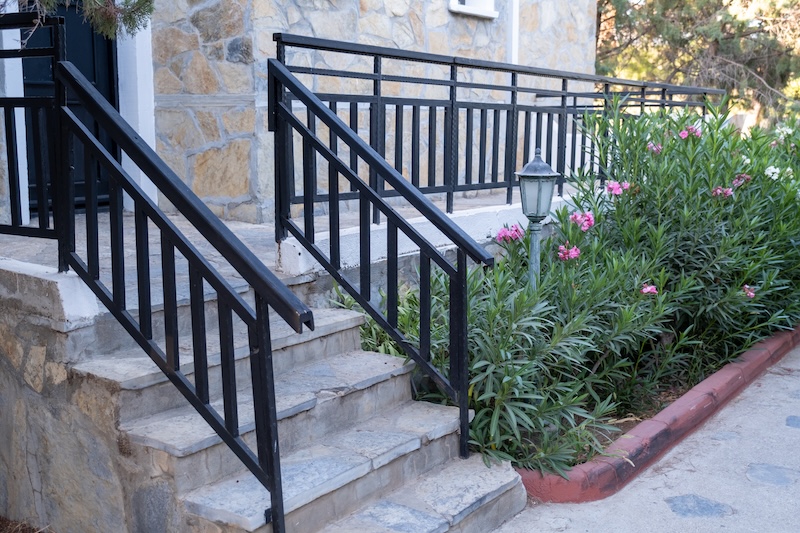
When you invest in a custom stair railing, you’re investing in safety, durability, and design. Choosing the right fabricator determines how well your railing performs over time.
A skilled professional brings experience with welding, code compliance, and finishing methods that keep your stair railings strong and attractive for years. Below, the railing contractors at Capitol Iron Works reveal:
- Why choosing the right fabricator matters
- 7 questions you must ask before hiring a local fabricator
- 7 simple steps for hiring the right metal fabricators
…so you know what to look for when evaluating your options in D.C., Maryland, and Virginia.
What If You Choose the Wrong Team for Stair Railing Fabrication?
Your stair railing does more than frame a staircase. It protects your family, improves your home’s appearance, and ensures compliance with building codes.
If you select the wrong contractor, you risk weak welds, premature corrosion, or failed inspections. Asking the right questions before hiring a fabricator minimizes costly repairs and ensures your railing stands the test of time.

7 Vital Questions to Ask Before Hiring a Local Fabricator
- Do they hold current welding certifications, such as AWS?
- Can they show a portfolio of past stair railing projects?
- Do they offer warranties on welds, finishes, and installation?
- Can they explain how their work complies with IBC and local codes?
- Do they recommend appropriate metals and finishes for your environment?
- Can they provide references from past clients?
- Do they give a detailed estimate and project timeline?
How to Hire the Right Metal Fabricators in 7 Simple Steps
- Confirm certifications and training.
- Review a sample portfolio.
- Ask about warranties and maintenance support.
- Verify code knowledge and compliance.
- Discuss materials and finishes.
- Request references and testimonials.
- Compare estimates and project timelines.
Step 1: Confirm Certifications and Training
Always ask about certifications. A reputable fabricator should hold credentials from recognized organizations such as the American Welding Society (AWS).
Proper certification proves that welders have passed skill tests under strict standards, which demonstrates a commitment to safety and quality in every project. If a contractor can’t provide this proof, they shouldn’t be trusted with your stair railing fabrication.
Step 2: Review a Sample Portfolio
Ask to see completed projects that match the scope of your stair railing project. A strong portfolio will include photos of fabricated railings, detailed examples of welding work, and before-and-after comparisons.
Reviewing real projects lets you judge both the technical execution and design capabilities. You want a fabricator who can handle clean lines for modern staircases as well as more traditional iron railings.
Step 3: Ask About Warranties and Maintenance Support
Fabricators who believe in their work back it with clear warranties. Ask about coverage for weld integrity, finishes, and installation.
Also ask how long the warranty lasts and whether it covers both materials and labor. Beyond warranty coverage, request information about maintenance services.
Some fabricators offer touch-ups, inspections, or seasonal adjustments that extend the life of your railing.
Step 4: Verify Code Knowledge and Compliance
Stair railings must follow building codes for height, load resistance, spacing, and handrail design. Always ask how they ensure compliance with International Building Code (IBC) standards and local requirements in the DMV.
A reliable contractor will provide engineered drawings, shop drawings, and material specifications to speed up permit approval. You should also confirm that your chosen fabricator has experience working with local inspectors.
Step 5: Discuss Materials and Finishes
Your stair railing’s performance depends on more than welding skill. Ask which metals and finishes the fabricator recommends for your home.
- For exterior projects in the DMV’s humid and salt-prone climate, galvanized steel or powder-coated aluminum railings may provide the best protection.
- For interior applications, stainless steel or glass railing systems may achieve the right balance of strength and aesthetics.
The right fabricator will guide you to materials that align with your style and environment. Read “What is the Best Material for Your Custom Railings?” to learn more.
Step 6: Request References and Testimonials
Hearing from past clients gives you insight into reliability and professionalism. Ask for references and follow up with them directly.
Inquire about timeliness, communication, and long-term satisfaction with the railing. Positive testimonials and repeat customers signal a contractor who stands behind their work.
Step 7: Compare Estimates and Project Timelines
Never base your decision solely on cost. Compare detailed estimates from at least two fabricators.
Look for clear breakdowns of material costs, labor, and installation. Also ask about projected timelines for both fabrication and stair railing installation.
A qualified professional will set realistic expectations rather than promise rushed results.
Bonus Step: Keep Reading to Stay Fully Informed
- Top 5 Best Metal Fabricators in Maryland, Washington, DC & Virginia
- Top Welders in Maryland & Nearby States (MD, DC, VA)
- Top 12 Metal Fabricators in the United States: Best Choices for 2024
- What to Expect from Our Custom Railing Fabrication Process
- Custom Staircase Cost Guide 2025

Find the Best Artisans to Fabricate Your Custom Railing Design
Selecting the right experts for your stair railing fabrication requires careful vetting. By confirming certifications, reviewing portfolios, and verifying code compliance, you protect your investment and ensure lasting results.
With the right questions, you can confidently hire a local fabricator who delivers both safety and design excellence. To get our answers to those 7 vital questions, contact our local railing contractors today!
